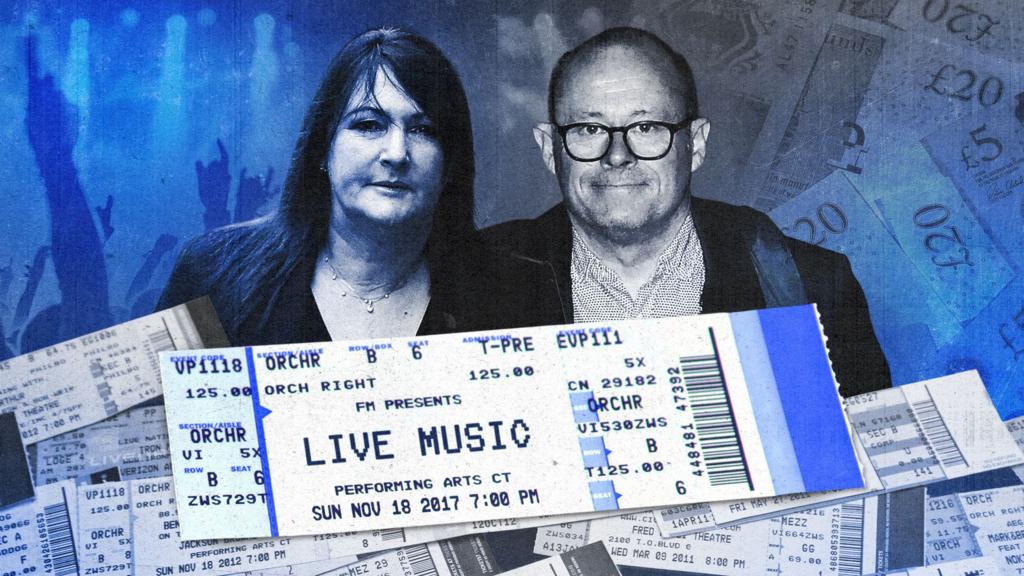A recent investigation reveals troubling evidence suggesting collusion between major ticketing companies and prolific ticket touts. This follows judicial concerns raised in past fraud convictions of prominent figures like Peter Hunter and Maria Chenery-Woods (“Ticket Queen”).
Judges in these cases noted potential “connivance and collusion” between ticketing firms and touts who amass tickets and resell them at inflated prices, exploiting loopholes and circumventing purchase limits.
Hunter and Chenery-Woods, operating between 2010-2017 and 2012-2017 respectively, utilized StubHub, Viagogo, GetMeIn!, and Seatwave (the latter two owned by Ticketmaster) to conduct their operations.
While Ticketmaster publicly claimed to combat illegal touting, its dual role as a primary ticketing website and owner of two major resale platforms (until 2018) raises questions.
Despite Ticketmaster’s non-involvement in the court cases, judicial comments prompted an investigation into its practices before the closure of its resale sites. Interviews with former and current staff, alongside examination of court transcripts, uncovered significant allegations.
Evidence strongly suggests that touts received inside assistance in acquiring and reselling tickets. Ticketmaster refutes these claims, attributing them to “long-defunct businesses” and stating its current commitment to “fair and secure ticketing.”
Hunter and Chenery-Woods were high-level operators, running registered businesses and making millions from online ticket sales. Raids revealed sophisticated operations involving numerous computers, tickets organized by seat number, and numerous credit cards.
While reselling tickets isn’t inherently illegal, they were convicted for using fraudulent methods, such as employing multiple identities and credit cards, to bypass purchase limits on primary ticketing sites like Ticketmaster, See Tickets, and AXS.
Law enforcement officials stated touts were “working hand-in-hand” with resale platforms. A former Seatwave employee described touts as “VIPs,” generating substantial revenue for the platform.
Resale platforms benefited from high seller volumes, with commissions potentially reaching 25% of the resale price. Court documents reveal that Hunter’s company generated £26.4m in revenue, potentially yielding millions in commissions for the resale sites.
Sources indicate resale platforms offered discounts to high-volume sellers. Hunter alleged GetMeIn! provided incentives, including cashback, for reaching sales targets. While primary ticketing companies were victims of fraud, they didn’t actively support prosecutions.
A former Ticketmaster employee confirmed close collaboration with touts, developing software to facilitate their secondary market sales. Internal communications allegedly revealed preferential treatment for large sellers, including assistance in avoiding purchase limit cancellations.
Court documents included emails suggesting that a senior GetMeIn! executive actively helped touts, offering information and circumventing Ticketmaster’s systems. This extended to facilitating communication between a tout and Ticketmaster’s top legal counsel.
Despite Ticketmaster’s claims of operational separation between its primary and resale platforms, evidence suggests close links, potentially enabling the identification of bulk ticket buyers and sellers.
Viagogo confirmed a business relationship with Hunter and Chenery-Woods’ accomplices prior to their convictions, while StubHub emphasized its commitment to compliance and consumer protection.
The court heard that some Ticketmaster employees were paid by touts to purchase tickets on their behalf. One GetMeIn! employee received significant payments from the Ticket Queen’s operation.
Further evidence suggests collaboration with American Express, which offered preferential access to tickets for events. Emails revealed an Amex representative offering numerous credit cards to bypass Ticketmaster’s purchase limits and offering to waive card fees.
American Express stated that they investigate instances of misconduct and take appropriate action. Ticketmaster, having closed its resale sites in 2018, now implements price caps on its platform but the problem of ticket touting persists.
Despite measures taken, tickets for high-demand events still quickly appear on resale sites, highlighting the ongoing challenge of combating ticket touting. Law enforcement acknowledges resource limitations in pursuing further investigations.
Authorities warn fans against purchasing tickets from unofficial sources, emphasizing the risks of scams and inflated prices.

